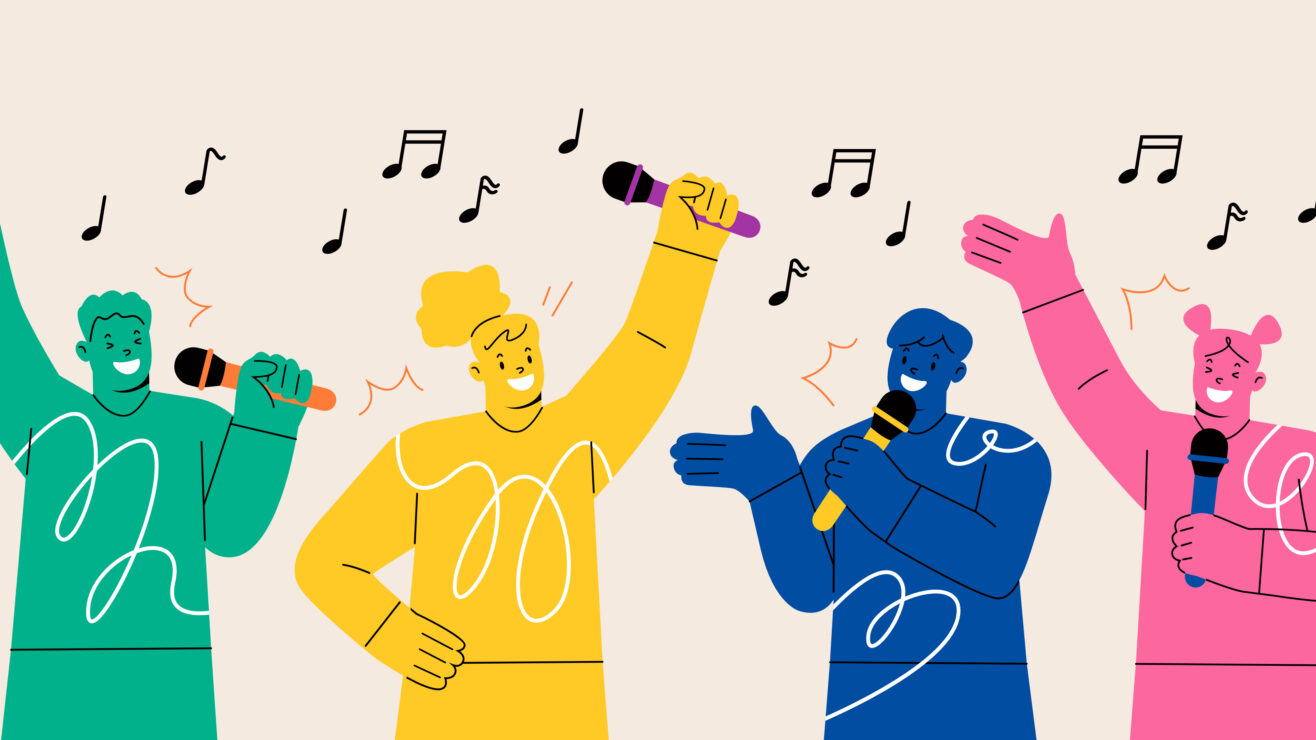John Blake’s new year speech to the English sector on increasing equality of opportunity through collaboration had some interesting messages in it.
He was building on his big messages from late last term – which stressed the need to consider the breadth of student mental health issues, student co-creation over initiatives, and the need to contribute to tackling the biggest risks to students – not just the easiest ones to address.
Now the Director for Fair Access and Participation at the Office for Students (OfS) has announced that he’d added some additional groups of students who may be at risk of not experiencing equality of opportunity – service children, young carers, prisoners, commuter students, parents, and Jewish students.
He also stressed a major change in OfS’ regulatory expectations that was relevant to third sector colleagues – what he calls “the presumption to partnership”.
To help, later this year OfS is going to seek bids for a share of a £2 million fund – providing grants to seed new practices and test new ideas aimed at supporting the equality of opportunity agenda that Blake has laid out.
And while some will be relieved that OfS has decided not to expand the number of risks in the Equality of Opportunity Risk Register at present, he’s noted that “sense of belonging” has appeared in lots of evidence reviews as relevant to many of the risks:
I’d urge providers to think hard about practical, enduringly impactful work they might do around that idea as part of new APPs.
It’s interesting because having just returned from a study tour to the Baltics and Finland, we found never ending examples of partnerships with students and their SUs over belonging.
The numbers are interesting. While there’s no explicit “sense of belonging” question in the Finnish NSS, there are questions on whether students support each other and try to give help when it is needed, whether talking with other students has helped students understand things better, and whether students have been able to work comfortably with other students during their courses. They’re among the highest ratings in the survey, and significantly higher than when the NSS used to test feeling part of a community.
The question that our gang of 40 or so SU officers and staff kept asking was how. And while there’s no doubt that Finnish culture, the way the education system emphasises both individual responsibility for learning and working in groups from an early age, and the Finnish student finance system clearly help, we do think we found something central that universities could adopt en masse – student tutoring.
Students lead it
One of the threads that stuck with me in a survey we ran last year was on why students hadn’t taken part in extracurricular activity. Cost of living, timing, variety and location were all up there – but the one that kept coming up was simple:
I had nobody to go with.
There are plenty of piecemeal examples of peer mentoring and social mentoring schemes up and running across the UK, and I’m risk of teaching some grandmas in the sector to suck eggs here, but but what was especially notable on our study tour travels was the absolute ubiquity of a system which puts students in charge of supporting other students to integrate into the academic community.
Pretty much every new student in Finland is allocated to a student tutor, often weeks before the start of term. Tutors principally play a crucial role in the first weeks – guiding new students around campus, organising a welcome experience that ties into their faculty and central SU’s events, organising meetings, and offering ongoing support throughout their studies over getting assignments done or avoiding academic misconduct.
Tutors are part social facilitators, part student life mentors and part academic mentors. They tend to be linked to academic/departmental student associations but are centrally trained by each university (and university of applied science) students’ union, and are allocated 5-15 new students to look after often from before welcome week until Xmas or beyond.
There are also specialised student tutor schemes – ones for physical education who promote sports culture, and teacher tutors, who assist in study planning. Some universities have dedicated tutors for international students, enhancing their integration and fostering connections.
The fact that it’s the SU doing the training and it’s students leading an almost personalised induction experience for new students sends a pretty powerful signal about students taking responsibility for their community and learning. Of all the volunteer roles, it’s the one that’s most consistently oversubscribed – “you want to be them”.
And when we asked Aalto what the one thing in the secret sauce was that created what they called “the world’s best student experience”, it was tutoring that they picked.
Talking to university managers on the trip, the role of a tutor not only delivers on a statutory obligation to deliver a good induction, but is almost universally seen as pivotal in making new students feel welcomed and integrated into the academic community, communicating the university’s values, aiding students’ social connections with fellow students, orienting them to the campus and the local area, and assisting students in understanding the demands of a programme and independent study.
Tutors are usually trained in fostering a positive atmosphere and sense of belonging, while being mindful of the diverse life circumstances and expectations of students. Most universities allocate academic credit for undertaking the role, some pay students to do it, and some even recruit recently graduated tutors to recreate the experience in the context of exiting the university and joining the world of work.
Students need it
Back in the UK, survey work from UniBuddy says that over a quarter of students were “not confident at all” about their social abilities when they applied to university, and fourteen per cent either struggled or failed to make any friends having arrived.
The UK results of its study on student confidence, weighted for gender, ethnicity, and international / home domicile, also show factors impacting student confidence – over half cited their mental health, and 1 in 5 said they had chosen the wrong university for them.
But over a quarter of students said their confidence would improve if they had a student mentor, and almost 1 in 4 said they’d get a confidence boost from being given more opportunities to make friends.
In the UK, the sunday supplements that bang on about “the deep end” of a mass HE system forget that many students seem to be drowning. So if we agree that joining a university – especially for those in APP categories – needs to feel smaller, easier to cope with, more intimate and less intimidating, the question is how that might be scaled, and whose job it is to design and deliver it.
My ongoing theory is that we’ve tended to pay little attention to this for a couple of reasons. The first is that campuses used to be smaller and less diverse, making building social connection more straightforward. The second is that the “boarding school” model of students in a hall of residence generated groups of students that meant a student rarely had to go to something on their own.
So in a modern mass system, it becomes more important (not less) to find ways to make that happen without the bricks, mortar, common rooms and kitchens of a hall of residence.
And both in Finland and plenty of other European countries we’ve visited, it’s your student tutor that sorts the getting to know you games with other students, does the campus tour, shows you around the city, helps you explore your identity and motivations, explains involvement opportunities, and covers off how to do well on the course every week until Christmas (and sometimes beyond) over cake.
They’re all at it
Across Europe, where students are much more likely to be commuters than boarders, there are all sorts of variations.
At VU Amsterdam, students are told:
- You will become acquainted with your degree programme and fellow students.
- You will discover all the hotspots on campus and of Amsterdam.
- You will participate in activities and go to fun performances
- You will take part in interesting workshops that help you prepare for your studies.
- You will find out more about the countless associations you can join at VU Amsterdam or in the city itself.
At Oslo Met, a “fadder” is:
- An ambassador: During the buddy weeks, you are the public face of the university and your study programme.
- A model: The new students look up to you and pay close attention to what you say and do!
- A caregiver: Shows consideration, responsibility and gets everyone in the group involved.
- A signpost: Answers questions and refers further if needed.
At Roskilde University in Denmark, the SU’s Reality Bites is the new students mentoring scheme. There each mentor looks after 5 new students throughout their 1st semester. Mentors serve as a “source of inspiration” for how students can make their study time more relevant and how they can make the most of their time as a student both inside and outside of the university.
At KTH in Stockholm, the chapters (big academic societies) each run their own little Welcome Week with a focus on getting to know other students. At DTU in Denmark, a new students programme involves volunteers taking new students on a “rus tur” to a camp, house or other venue before the start of term to cause some bonding between new students.
In Sweden, Jönköping University SU runs as a huge teambuilding event – students in schools are organised into groups who then take part in challenges/games with other students from other schools. And across Finland, what used to be pub crawls (Appros) have now been transformed into team events too – tutors get their new students to sign up to exploration events that tour everything from cafes and restaurants to support services and sports facilities.
Civic society
We’ve seen community partnerships too. In Denmark growing out of tutoring, one project matched new PhD students with Danish families from the local business network, and another involved students from the city (often commuter students) leading groups of new students to explore a cultural site or a leisure activity – sponsored by the city, students got a free entrance ticket, helping build bridges between locals and those from elsewhere in Denmark.
In multiple student tutoring models we’ve seen, people meet up before they even get to university on Zoom; they can often choose from a long or short programme; they’re usually held within subjects but are chosen for diversity; often streamed for age; and there’s often dedicated programmes aimed at international PGTs or additional student-led days designed and led by first in family students.
One thing I can’t stress enough is that they’re rarely optional – they’re expected, and crucially they’re diverse. Where some might run a “commuter student breakfast”, the whole point here is to get the tutor to facilitate students being respectful of the diversity of eachother.
For SUs, if it’s the case that they help foster belonging, confidence and skills, they are potentially the ultimate manifestation of the SU as an educational charity. And if they role model student leadership and volunteerism and help get students engaged in extracurricular activities as well, all the better for the university community as a whole.
What all of these schemes represent is a welcome period that patches into what the university and the SU have on, and probably starts earlier and finishes much later as mentors keep their group engaged all term.
But most importantly, they’re about community, connection, confidence, overcoming imposter syndrome, meeting students’ needs, understanding the importance of service to others and building networks.
The research says it
There’s research that backs it all up too. A new study out this week on this kind of peer mentoring during the initial phase of studies found favourable impacts across social and academic integration, career benefits, emotional benefits, soft skills, university-life balance, study dropout intention and sense of belonging to university.
At a study in a Dutch university, peer mentors organised the programme of their mentees’ first week on campus – including a welcome ceremony, campus tour, introductory activities, and team building. Students said that this made them feel “more than a number” at the university and felt more part of a community from the outset. Particularly, they valued the pre-prepared opportunities to get to know their coursemates, or “potential friends” as one student put it.
This study found that students who participated in a peer mentoring program had higher rates of academic success and retention compared to those who did not participate, and found that peer mentoring had a positive impact on the social and emotional well-being of students. Another study found that these programmes can be especially effective for first in the family students – who represent a key “drop out risk” in OfS data – with higher rates of academic success and retention compared to those who did not participate.
A study conducted by Ball State University found that students who participated were more likely to report feeling satisfied with their college experience, and in this study peer support was an important contributor to transition and belonging. This study discusses how participants gained cultural and academic capital, which included not just skills but also cultural knowledge and ways of behaving, teaching and learning that were valued in their subject.
This study showed strong positive correlations among contact, satisfaction and perceived mentor social support, and this study looked at the impact of a support network for international students of culturally diverse backgrounds using a similar scheme – and found success in facilitating integration of first-year international students, engendering a community of international students in the school, and increasing the percentage of passes in the first-year examination while reducing the attrition rate.
And this study shows the extent to which the mentors themselves develop as leaders. Here the mentors demonstrated leadership through practices like role modelling, enabling others to act, inspiring a shared vision, “encouraging the heart”, and goal setting. The study suggests that peer mentoring is more than just a one-on-one relationship and that the mentoring experience should include group interactions and training sessions.
In research conducted by Student Minds (on the importance of student peers in creating a sense of belonging and improving students’ well-being), peer support was vital in ensuring other students felt valued and safe enough to seek help. And in this study at an American university where students were assigned a “class leader” to each individual first-year class or module, they found that there was greater consistent engagement and reward for all involved when these leaders planned and led activities from the beginning of the academic year.
A vehicle for student development agendas
But what’s even more fascinating is the way in which the ubiquity of the approach in parts of Europe allows contemporary development issues to be delivered efficiently and personally too.
In the UK there are all sorts of what I’ve previously called “PSHE agendas” that tend to each have a scrappy online module or an awareness week and their own agenda in a separate department in a university. What’s attractive about the Finnish version is that it is student led, student delivered, in person and able to take in multiple agendas as they arise.
So for example, KUPLA was a project developed between NYTTI (The Finnish version of Student Minds) and EHYT, a national charity that works on Preventing drug and gambling harm. It produced model tutoring materials for SUs to adapt that both cover the core tutoring role(s) on orientation, belonging and community, and material on mental health and drug/alcohol abuse.
So common are the schemes that there’s national resources that SUs adopt – a Skillful Tutor handbook, a six-part tutor training pack that covers the role of a tutor, planning activities, guiding skills and creating a safe atmosphere, diversity and inclusivity, study skills and mental wellbeing and substances, and additional materials on putting on events for associations and groups, some bystander stuff, and online/remote training materials.
Back here in the UK there’s a multi-car pile up of agendas – harassment, free speech, academic misconduct, accessing support services, coping on a budget, academic expectations for FiF or international students and many more – all of which would all benefit from an established, universal, peer to peer vehicle through which to deliver learning effectively.
And while I know there’s all sorts of little peer support schemes, buddying programmes and suchlike already in place across the country, I suspect few universities and their SUs are working together to deliver the sorts of near-universal schemes that our friends in Europe have successfully established.
No, it’s not a panacea, yes, students are starved of time, I know some folk do it already and scaling it up might prove difficult. But there’s something in this.
Especially for those in England thinking through their APP, given OfS is keen to see something that works, partnerships with charities and interventions that are co-designed with students, I’d urge SUs to get together with APP teams and student services colleagues and plot out a pilot of a proper student tutoring scheme for next year.
It could well be transformational – we’d be happy to help – and you might even be able to get some of John Blake’s £2m to try it.













